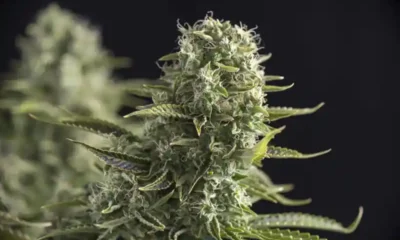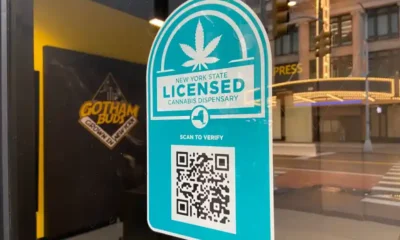Connect with us
Published
8 months agoon

Nearly five years after sales first began, the Massachusetts cannabis market recently hit a major milestone by surpassing $5 billion in gross sales on Aug. 31, according to a Wednesday announcement from the state’s Cannabis Control Commission (CCC). The news follows three consecutive months of record sales in June, July and August.
In August alone, sales reached $139.3 million, along with a year-to-date total of $1.05 billion within the first eight months of 2023. Licensees surpassed the $4 billion mark just as 2022 came to a close, making this period the shortest it’s taken for Massachusetts businesses to generate another $1 billion in gross sales.
The continued growth of sales is assuring, especially given the recent legalization of cannabis in neighboring states that, in theory, would have reduced out-of-state shoppers and potentially revenue as a whole. Regulators have even looked at new ways to adapt around legalization in neighboring states, like changing pricing structures.
However, as of right now, neighboring states with legal cannabis don’t seem to be much of an issue for Massachusetts.
“Massachusetts continues to hit record sales even as other states have come online. In fact, our neighboring states Maine, Rhode Island, and Connecticut also had record sales this summer,” CCC Executive Director Shawn Collins said. “Demand for tested, quality cannabis products remains strong in the region, and consumers shopping in other states have not impacted Massachusetts’ success.”
According to the CCC, the pace of hitting the next $1 billion aggregate gross sales milestone has continued to quicken, with each subsequent tally occurring quicker than the one before.
Data to reach the $5 billion figure includes gross sales reports from 317 cannabis retailers, nine delivery couriers, eight delivery operators and one microbusiness with a delivery endorsement, according to the CCC.
It also appears that most cannabis retailers in Massachusetts are still doing well, or at least well enough to keep their businesses open. To date, only five cannabis retailers (or 1.6% of all operating cannabis retailers) have surrendered or let their license expire in Massachusetts since stores opened in 2018. Looking broader, 16 cannabis establishments (2.8% of all previously operating establishments) have surrendered their license, let it expire or had it revoked since 2018.
Conversely, 53 cannabis retailers have opened for business across the state, along with four cannabis delivery operators, since January 2023.
Massachusetts joins a number of other states continuing to smash previous cannabis sales records.
Alongside neighbors Maine, Rhode Island and Connecticut, Maryland broke another sales record in July, selling nearly $92 million worth of cannabis products during the state’s second month of legal recreational sales.
Michigan also reached another record high in July, totaling nearly $277 million worth of cannabis sold. Illinois cannabis retailers had their strongest sales of the year in July, selling $140 million worth of recreational cannabis products — also the second-highest monthly total for the state since it launched the adult-use market in 2020. Missouri retailers have also sold about $4 million worth of cannabis products per day on average since the state launched its adult-use market in February. The state also hit a record $121.2 million in cannabis purchases back in June.
The CCC notes that the $5 billion landmark comes at “a pivotal time,” as the Commission celebrates its sixth anniversary. The agency is also in the process of undergoing a regulatory review, which some lab testing facilities have indicated they support given that current regulations may leave gaps in consumer safety.
Next up, Massachusetts could also become one of the few states with legal psychedelics, as the state attorney general’s office recently determined that a pair of 2024 psychedelics reform ballot initiatives have met state constitutional requirements. Final summaries have been released, and activists can now begin the process of collecting final signatures to qualify the measures to go before voters next year.


No Increase in DUI Among Young Adults After Pot Legalization in Washington


Berner To Join Cast of The Freak Brothers


Moroccan Farmers Urging Government To Legalize Cannabis


Study: Researchers Present Benefits of Entourage Effect


Anti-Pot Org Claims DEA Administrator Was Not Included in Rescheduling Decision


Some NY Lawmakers Say Illicit Pot Shops Must Close Before Adding Licensed Shops
